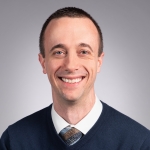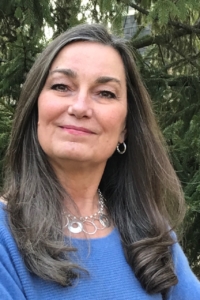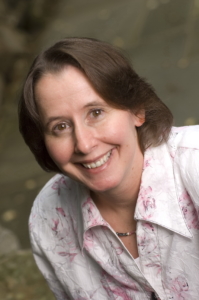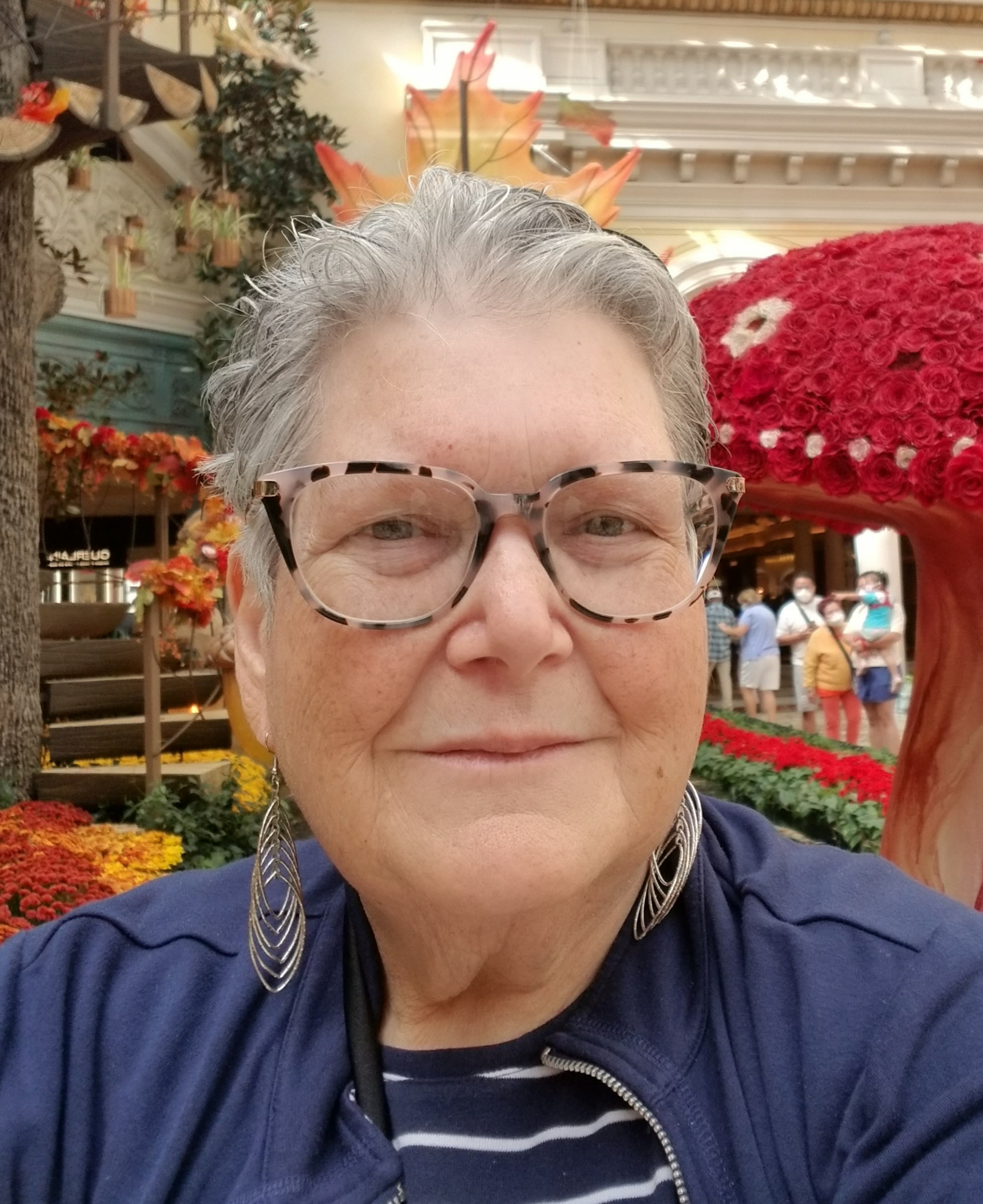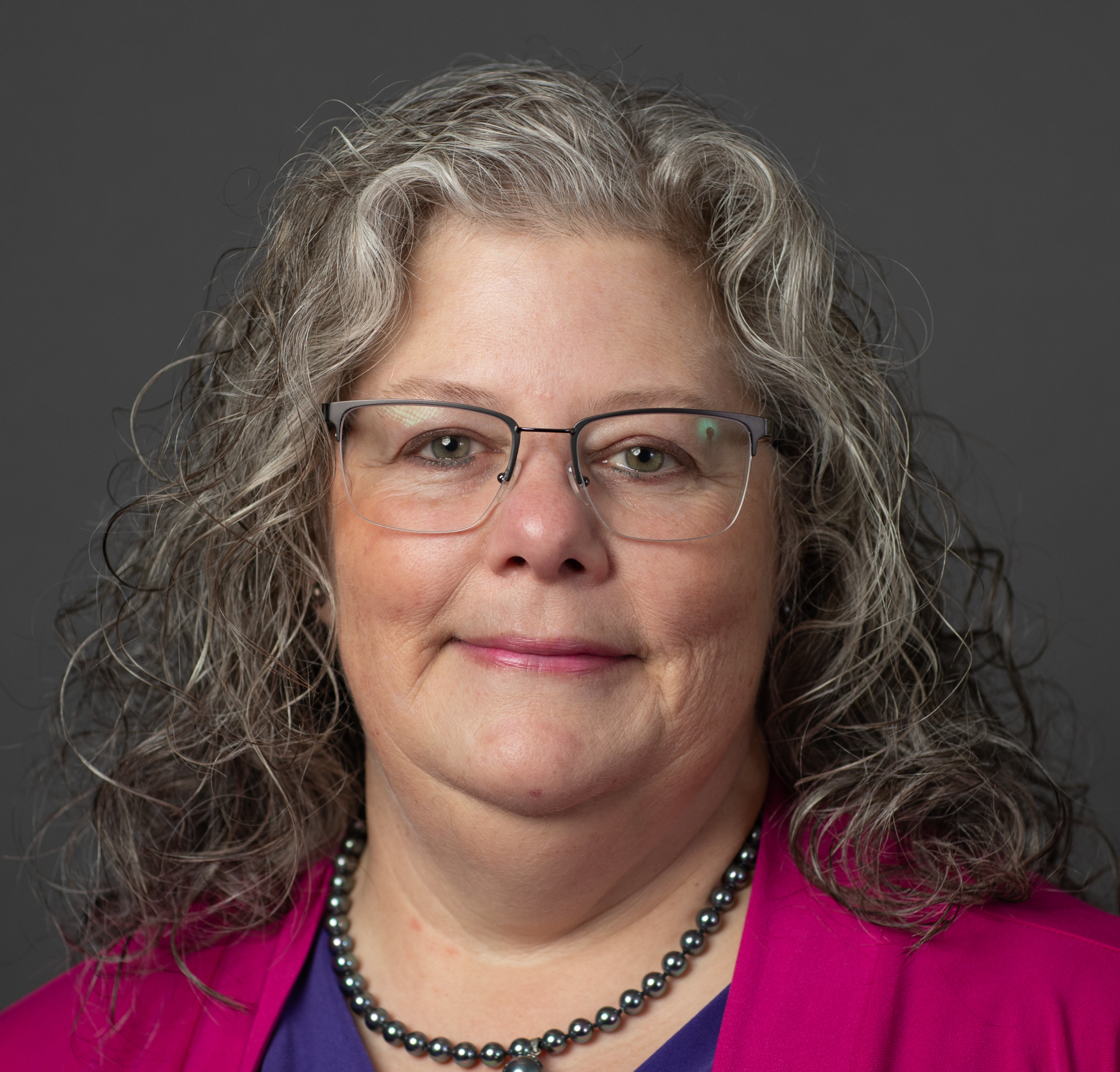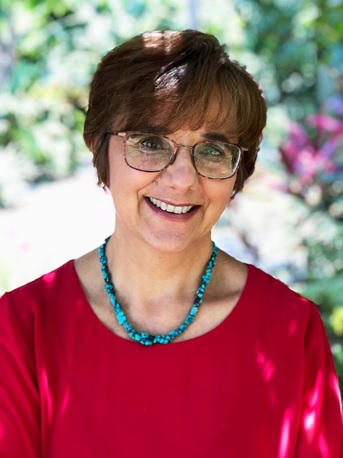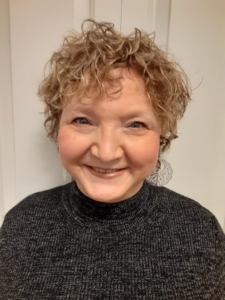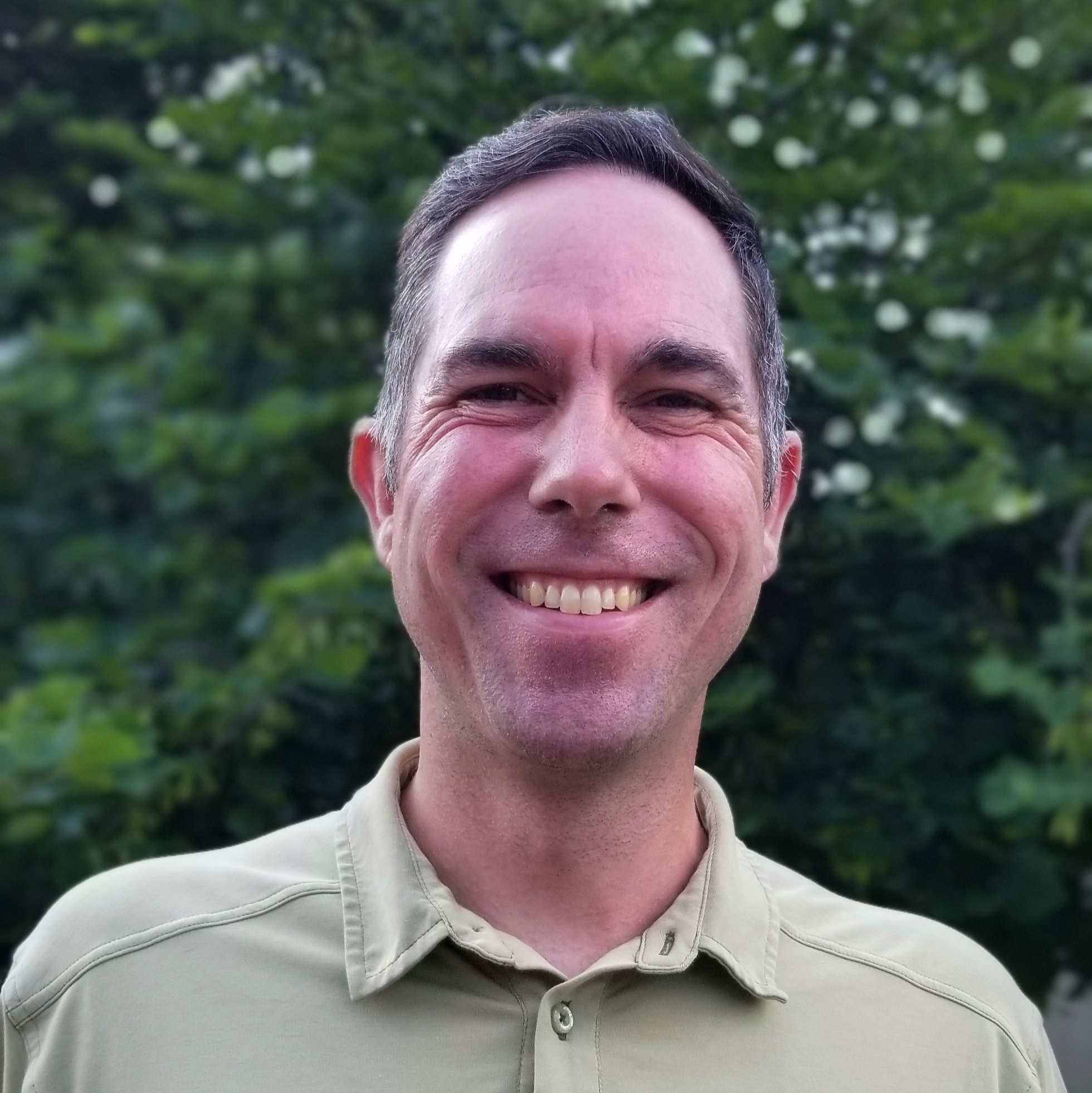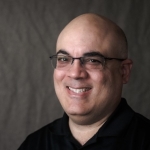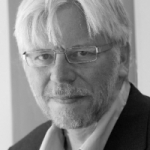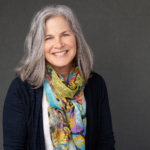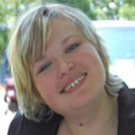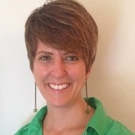ATIA 2024 Strand Advisors and Partners
The ATIA 2024 strand advisors are each recognized experts in their respective session strands. The strand advisors play a critical role in curating the conference education program and ensuring each education session meets the diverse needs of conference attendees.
The Strands are:
- Aging & AT
- AT for Physical Access and Participation
- Augmentative and Alternative Communication (AAC)
- Education & Learning: Early Intervention – 12/Higher Education
- Leadership
- Mainstream Accessible Technologies
- Research
- Transition & Workplace Accessibility
- Vision & Hearing Technologies
Aging and AT
Supporting Partner:
Jeannie Krull, MS/CCC-SLP, ATP, CAPS; Assistant Executive Director, North Dakota Assistive; Representing the Association of Assistive Technology Act Programs (ATAP)
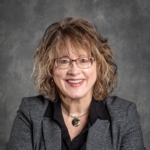 Jeannie Krull, MS/CCC-SLP, ATP, CAPS is an ASHA certified Speech/Language Pathologist, a RESNA certified Assistive Technology Professional (ATP), and a Certified Aging in Place Specialist (CAPS) who has worked with people all ages and disabilities since 1991. Ms. Krull spent the first part of her career working for a private practice as a speech pathologist, specializing in many areas, in multiple settings to include clinics, schools, hospitals, and nursing homes.
Jeannie Krull, MS/CCC-SLP, ATP, CAPS is an ASHA certified Speech/Language Pathologist, a RESNA certified Assistive Technology Professional (ATP), and a Certified Aging in Place Specialist (CAPS) who has worked with people all ages and disabilities since 1991. Ms. Krull spent the first part of her career working for a private practice as a speech pathologist, specializing in many areas, in multiple settings to include clinics, schools, hospitals, and nursing homes.
Currently Ms. Krull is Assistant Executive Director for North Dakota Assistive, a non-profit which houses the state’s Assistive Technology Act program and many other assistive technology-related programs. Her work with ND Assistive, since 2000, has focused on changing systems and policies, educating, presenting, collaborating, advocating, and helping people with disabilities find life-changing assistive technology solutions to help them live, learn, work and play. For the last seven years, she has also been the program director for the ND AT Act program. Her most recent work consists of helping to establish the CAPABLE program in North Dakota, a Johns Hopkins, evidenced based program to help people age in place. She is also currently working to help build AT services in the region by changing policies and procedures regarding AT within the ND HCBS Medicaid Waivers and Money Follows the Person programs to help people live and thrive where they choose. In addition, she is a 2019 Bush Foundation Fellow and currently serves as the Chair of the board of the National Association of Assistive Technology Act Programs.
Wendy A. Rogers, Khan Professor of Applied Health Sciences, University of Illinois Urbana-Champaign
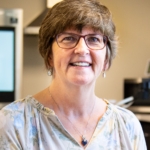 Wendy A. Rogers, Ph.D., is Shahid and Ann Carlson Khan Professor of Applied Health Sciences at the University of Illinois Urbana-Champaign. Her primary appointment is in Community Health. She has an appointment in Educational Psychology and is an affiliate of the Beckman Institute for Advanced Science & Technology; Illinois Informatics Institute; Center for Social and Behavioral Science; Women and Gender in Global Perspectives; the Discovery Partners Institute, and the Coordinated Science Lab Robotics Group. She received her B.A. from the University of Massachusetts – Dartmouth, and her M.S. and Ph.D. from the Georgia Institute of Technology. She is a Certified Human Factors Professional (BCPE Certificate #1539).
Wendy A. Rogers, Ph.D., is Shahid and Ann Carlson Khan Professor of Applied Health Sciences at the University of Illinois Urbana-Champaign. Her primary appointment is in Community Health. She has an appointment in Educational Psychology and is an affiliate of the Beckman Institute for Advanced Science & Technology; Illinois Informatics Institute; Center for Social and Behavioral Science; Women and Gender in Global Perspectives; the Discovery Partners Institute, and the Coordinated Science Lab Robotics Group. She received her B.A. from the University of Massachusetts – Dartmouth, and her M.S. and Ph.D. from the Georgia Institute of Technology. She is a Certified Human Factors Professional (BCPE Certificate #1539).
Her research interests include design for aging; digital health; human-robot interaction; aging with disabilities; technology trust and acceptance; and training. She is Director of the McKechnie Family LIFE Home and the Health Technology Education Program; Program Director of CHART (Collaborations in Health, Aging, Research, and Technology); and Director of the Human Factors and Aging Laboratory. She is the Editor of the Human Factors and Aging Book Series.
Dr. Rogers’ research is funded by the National Institutes of Health through the National Institute on Aging as part of the Center for Research and Education on Aging and Technology Enhancement (CREATE); and through the National Institute of Nursing Research. In addition, her work is funded by the Department of Health and Human Services through the National Institute on Disability, Independent Living, and Rehabilitation Research as part of the Rehabilitation Engineering Research Centers on Technologies to Support Aging-in-Place for People with Long-Term Disabilities (TechSAge) and the Center for Enhancing Neurocognitive Health, Abilities, Networks, and Community Engagement (ENHANCE).
Contact the Aging and AT team at: agingandatstrand@atia.org
AT for Physical Access and Participation
Supporting Partners:
William E. Janes, OTD, MSCI, OTR/L; Assistant Research Professor, Department of Occupational Therapy, University of Missouri; Representing the American Occupational Therapy Association (AOTA)
William Janes, OTD, MSCI, OTR/L is an occupational therapist and Assistant Professor at the University of Missouri. He has served in numerous volunteer leadership roles within AOTA and RESNA. He currently serves on the Editorial Board of ATIA’s journal, Assistive Technology Outcomes and Benefits (ATOB). Dr. Janes’ work focuses on applications of consumer technologies to address the everyday needs of people living with disabilities. His current projects include a multi-site consortium for GoBabyGo data collection, an interdisciplinary makerspace devoted to inclusively designed assistive technologies, and implementing home-based and wearable sensors to target multidisciplinary care in ALS.
Judith Schoonover, MEd, OTR/L, ATP, FAOTA, AT Consultant; Representing Early Intervention & School Special Interest Section, American Occupational Therapy Association (AOTA)
Judith Schoonover, MEd, OTR/L, ATP, FAOTA is an occupational therapist and former elementary school teacher. She is certified as an assistive technology professional (ATP) by RESNA and was a founding member of the Loudoun County Public Schools Assistive Technology Team. Judith has provided direct services in schools for more than 44 years and is a nationally and internationally recognized speaker presenting on the topics of school-based occupational therapy, transition, literacy, and assistive technology. She has authored numerous articles, and chapters in Early Childhood: Occupational Therapy Services for Children Birth to Five, Occupational Therapy for Children (6th-8th eds.), Best Practices in School Occupational Therapy, Assistive Technologies, and Occupational Therapy and Transitions: A Cross-System Perspective. She participated in National Association of State Directors of Special Education (NASDSE) workgroups addressing the response to intervention (RTI), transition, and virtual schools. Currently, Judith represents AOTA on the National Joint Committee (NJC) for the Communication Needs of Persons with Severe Disabilities and serves on the editorial board of the Assistive Technology Outcomes and Benefits (ATOB) Journal.
Therese Willkomm, Ph.D., Director of ATinNH; Representing RESNA
Dr. Therese Willkomm, PhD, is the Director of New Hampshire’s State Assistive Technology Program with the Institute on Disability at the University of New Hampshire (UNH) Dr. Willkomm is clinical associate professor emeritus in the Department of Occupational Therapy. She developed, coordinated and taught the assistive technology courses for the Graduate Certificate Program in Assistive Technology for 23 years. She is known nationally and internationally for her innovative strategies for creating solutions in minutes. She has designed and fabricated over two thousand solutions for individuals with disabilities to maximize independence in all life functions. She has presented her work in 42 states, ten foreign countries and three U.S. Territories and has authored over 22 publication including her recent book Assistive Technology Solutions in Minutes Book 3: – “Make Stuff and Love People”.
Contact the AT for Physical Access and Participation Team at ATPAPStrand@atia.org.
Augmentative and Alternative Communication
Supporting Partner:
Amy Goldman, President, USSAAC
Amy S. Goldman is currently President of the US Society for AAC (USSAAC). She previously was Technical Assistance Specialist with the national AT3 Center, and the co-executive director of the Institute on Disabilities, University Center of Excellence in Developmental Disabilities at Temple University. A licensed speech-language pathologist, Amy’s career has focused on the area of augmentative and alternative communication (AAC) and especially, access to AAC for people with intellectual and developmental disabilities. Amy is a member of the National Joint Committee for the Communication Needs of Persons with Severe Disabilities (“NJC”) representing USSAAC.
Angela Standridge, Director, Texas Technology Access Program; Representing ASHA AAC SIG 12
Angela is passionate about using technology to enable Texans with disabilities to meet their educational, vocational, and personal potential. She is a speech language pathologist and assistive technology specialist with over 30 years’ experience in assistive technology with an emphasis in augmentative and alternative communication (AAC). She is Certified in Clinical Competence by the American Speech Language and Hearing Association. Angela obtained her Bachelors of Science in Education and Theater from Stephen F. Austin State University in Nacogdoches, Texas; and her Masters degree in Communication Disorders from the University of Houston. She has completed the California State University at Northridge Assistive Technology Certificate Program, and holds the Rehabilitation Engineering and Assistive Technology Society of North America Assistive Technology Professional (ATP) Certification. She has worked in public schools, private industry, private practice, rehabilitation, and as an education service center specialist. She is currently the Director of the Texas Technology Access Program at the Texas Center for Disability Studies, University of Texas. Additionally, she supports her professional organization, the American Speech Language and Hearing Association, as the Chair for Special Interest Group 12 (AAC) Coordinating Committee.
Carole Zangari, Professor & Executive Director, NSU CARD Satellite, Nova Southeastern University
Dr. Carole Zangari is a Professor in the Speech Language Pathology department at Nova Southeastern University where she teaches master’s/doctoral courses in AAC, coordinates the AAC Lab, and supports graduate student clinicians. In addition, Dr. Zangari serves as the Executive Director of the Broward satellite of the University of Miami-Nova Southeastern University Center for Autism and Related Disabilities (UM-NSU CARD). She is a frequent presenter on AAC topics at international and national conferences. Dr. Zangari is the co-editor of Practically Speaking Language, Literacy, and Academic Development for Students with AAC Needs and co-author of TELL ME: AAC in the Preschool Classroom and TELL ME Más: CAA en el Aula Preescolar. She blogs at www.PrAACticalAAC.org.
Dr. Zangari can be reached through her website or other social media venues including Twitter (@PrAACticalAAC), Facebook (www.Facebook.com/PrAACticalAAC), Pinterest (pinterest.com/AACandAT), and Instagram (@praacticalaac).
Contact the AAC Team at AACStrand@atia.org.
Education & Learning: Early Intervention – 12/Higher Education
Supporting Partner:
Kelly Fonner, Assistive Technology Consultant/Special Education Teacher
Kelly Fonner, MS is a self-employed consultant and trainer in assistive and educational technology. She has a BS in Special Education from Millersville University and an MS in Educational Technology with emphasis in Rehabilitation/Special Education Technology from The Johns Hopkins University. Her continuing education and research has been in the area of Adult Education and Special Education Technology at the University of Wisconsin Milwaukee. She holds an Assistive Technology Applications Certificate of Learning from California State University – Northridge. Kelly has been a teacher, para-educator, instructional media specialist, assistive technology specialist and is currently a self-employed consultant in assistive and educational technology. In these roles, she has worked for the public school system as well as private, non-profit organizations, a statewide AT project and has been an instructor in university courses on AT. Kelly is also the family member of individuals with disabilities.
Since 1986 Kelly has presented at schools, conferences, & to families in 48 states and internationally in Australia, Canada and South Africa. She speaks on a wide range of topics including assistive technology assessment and implementation strategies, augmentative communication, computer access, electronic literacy and study skills. Each year she works with approximately 50 school-based teams supporting students and their teams in the implementation of AAC & electronic literacy in the classroom. She is available to do seminars, webinars, consultations and workshops. Her website is www.kellyfonner.com.
Maggie Pickett, Senior Technical Assistance Specialist, CAST
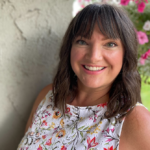 Maggie’s passion in education resides in creating engaging and accessible learning opportunities for all learners. She has worked with teachers, students, administrators, paraprofessionals, families, and community partners to build a common understanding of how creating engaging and accessible learning for ALL is possible. Maggie has supported AT implementation across the educational cascade, from the capitol to the classroom, working at a state department of education as a Program Consultant for AT/AEM/UDL and supporting the continuum of learner needs as a speech-language pathologist and assistive technology specialist supporting 32 school districts. Maggie has supported educational teams to promote the use of strategies to better support the range of learner needs, from learners with high-incidence disabilities to learners with complex communication and learning support needs birth to 21. Maggie is an ISTE Community Leader and works to align general education technology with special education technology, and assistive technology. Maggie believes we are better together, and that the future is inclusive.
Maggie’s passion in education resides in creating engaging and accessible learning opportunities for all learners. She has worked with teachers, students, administrators, paraprofessionals, families, and community partners to build a common understanding of how creating engaging and accessible learning for ALL is possible. Maggie has supported AT implementation across the educational cascade, from the capitol to the classroom, working at a state department of education as a Program Consultant for AT/AEM/UDL and supporting the continuum of learner needs as a speech-language pathologist and assistive technology specialist supporting 32 school districts. Maggie has supported educational teams to promote the use of strategies to better support the range of learner needs, from learners with high-incidence disabilities to learners with complex communication and learning support needs birth to 21. Maggie is an ISTE Community Leader and works to align general education technology with special education technology, and assistive technology. Maggie believes we are better together, and that the future is inclusive.
Contact the Education/Learning Team at Education-LearningStrand@atia.org
Mainstream Accessible Technologies
Mike Marotta, ATP – Inclusive Technology Evangelist
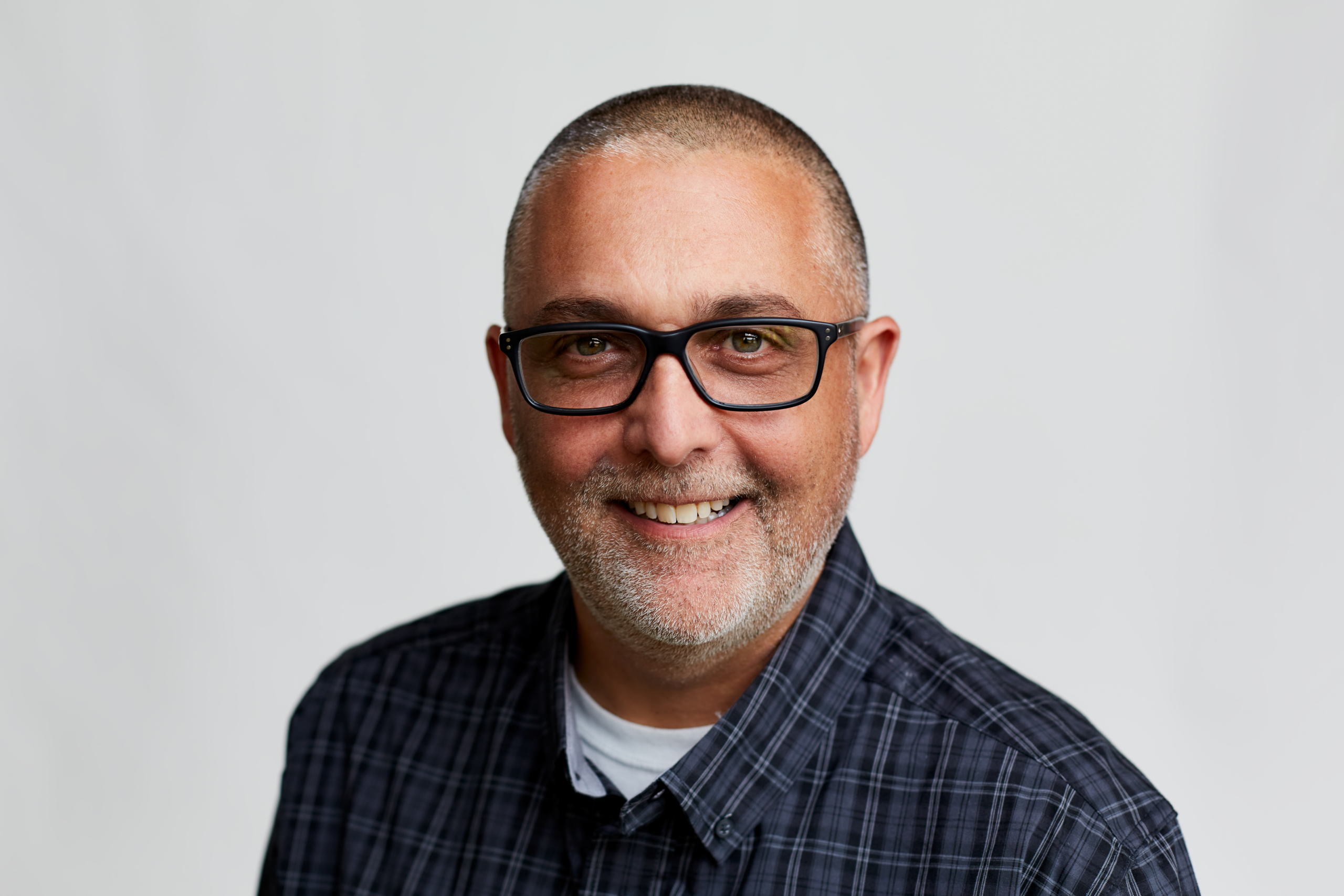 Mike is a RESNA Certified Assistive Technology Professional and the 2017 ISTE Inclusive Learning Network Outstanding Educator. Mike is a nationally and internationally recognized presenter providing practical training to professionals interested in assistive and inclusive technology. In addition, Mike is an adjunct professor at Ramapo College of New Jersey (NJ) teaching Masters level educators in Assistive Technology and Universal Design for Learning.
Mike is a RESNA Certified Assistive Technology Professional and the 2017 ISTE Inclusive Learning Network Outstanding Educator. Mike is a nationally and internationally recognized presenter providing practical training to professionals interested in assistive and inclusive technology. In addition, Mike is an adjunct professor at Ramapo College of New Jersey (NJ) teaching Masters level educators in Assistive Technology and Universal Design for Learning.
Mike is the Director of the Richard West Assistive Technology Advocacy Center and serves on both the CAST Accessible Educational Materials and Center on Inclusive Technology and Education Systems (CITES) Advisory Boards. Mike is also the founder of EdcampAccess NJ and co-moderator of the weekly #ATchat Twitter chat. Mike is one of the co-authors of the ISTE book Inclusive Learning 365: Edtech Strategies for Every Day of the Year. For details visit https://inclusive365.com/ For full list of financial and non-financial disclosures, visit https://mmatp.com/disclosures/
Rob Carr, Strategic Accessibility Coordinator at WebAIM
Rob Carr is the Strategic Accessibility Coordinator at WebAIM. Rob has been in the digital accessibility space since 2010. He has spent loads of time training, consulting, and learning about digital accessibility topics large and small. Rob has worked with thousands of individuals and dozens of organizations on everything from accessibility in a single PDF to integrating accessibility into organizations’ digital strategies. Rob presents at national conferences, organizes the occasional conference, and tries to be more active and less snarky on LinkedIn.
Contact the Mainstream & Web Accessible Technologies Team at MainstreamTechStrand@atia.org
Transition and Workplace Accessibility
Supporting Partner:
Teresa Goddard, Lead Consultant, Job Accommodation Network (JAN)
Teresa joined the JAN staff as a Program Assistant in March 2008 and joined the Motor Team as a Consultant in August 2008. As she has now transitioned to JAN’s sensory team, Teresa fields questions from employees and employers regarding their rights and responsibilities under the Americans with Disabilities Act (ADA) and assists in identifying accommodation solutions for employees with sensory impairments.
Teresa’s professional experience includes work as an Educational Speech-Language Pathologist and as an EFL instructor in Aichi Prefecture, Japan where in addition to classroom teaching, she led continuing education workshops on collaborative instructional techniques and cross-cultural understanding.
Teresa holds a bachelors degree in Speech Pathology and Audiology and a masters degree in Speech Pathology from West Virginia University’s College of Human Resources and Education. She has earned 45 hours above the masters’ level with elective course work in augmentative and alternative communication, behavior disorders, and reading. Teresa’s research interests include assistive technology and cross-cultural perspectives on disability services.
Luis Pérez, Ph. D., Disability and Digital Inclusion Lead, CAST
As the Disability & Digital Inclusion Lead for CAST, Luis promotes the creation, delivery and use of high quality accessible educational materials and technologies to support equitable learning opportunities for all students. Luis is embedded with the Postsecondary and Workforce Development group at CAST that works to increase access to middle- and high-income careers for populations underrepresented in the workforce, including people with disabilities. Luis’s perspective is informed by his own lived experience as a person with a disability and multilingual learner.
Luis was recognized with an International Society for Technology in Education (ISTE) Making It Happen! Award in 2020. Other recognitions include Apple Distinguished Educator (2009) and Google Certified Innovator (2014). He has published three books on accessibility, mobile learning, and UDL: Mobile Learning for All (Corwin Press), Dive into UDL (ISTE) and Learning on the Go (CAST Publishing).
Contact the Work Accessibility Team at Transition WorkplaceStrand@atia.org.
Vision & Hearing Technologies
Supporting Partner:
Rachael Sessler Trinkowsky, Ph.D., CRC, CATIS, AT Program Coordinator, UMass Boston; Representing ACVREP
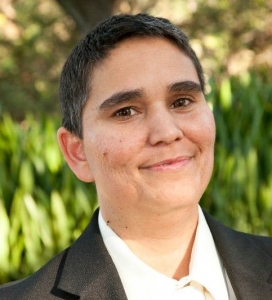 Rachael Sessler Trinkowsky, Ph.D., CRC, CATIS, CPACC, is the Assistive Technology Program Coordinator for the Vision Studies department at the University of Massachusetts Boston (UMass Boston). Additionally, she is an adjunct faculty member at the University of Illinois Chicago (UIC) in its Assistive Technology Certificate Program. Trinkowsky holds a B.A. degree in Special Education and a Masters of Health Science in Rehabilitation Counseling from the University of Florida. She also earned an Educational Specialist and a Ph.D. from Nova Southeastern University’s College of Engineering and Computing in Computing Technology in Education. Her dissertation topic focused on accessibility awareness and practices in online learning environments. Rachael is serving as the member-at-large Rehabilitation for Florida AER since 2018 and she also serves as the Accessibility Committee Chair for the Association for Education and Rehabilitation of the Blind and Visually Impaired. She is a Google Chromebook Accessibility Ambassador.
Rachael Sessler Trinkowsky, Ph.D., CRC, CATIS, CPACC, is the Assistive Technology Program Coordinator for the Vision Studies department at the University of Massachusetts Boston (UMass Boston). Additionally, she is an adjunct faculty member at the University of Illinois Chicago (UIC) in its Assistive Technology Certificate Program. Trinkowsky holds a B.A. degree in Special Education and a Masters of Health Science in Rehabilitation Counseling from the University of Florida. She also earned an Educational Specialist and a Ph.D. from Nova Southeastern University’s College of Engineering and Computing in Computing Technology in Education. Her dissertation topic focused on accessibility awareness and practices in online learning environments. Rachael is serving as the member-at-large Rehabilitation for Florida AER since 2018 and she also serves as the Accessibility Committee Chair for the Association for Education and Rehabilitation of the Blind and Visually Impaired. She is a Google Chromebook Accessibility Ambassador.
Trinkowsky has been a Certified Rehabilitation Counselor (CRC) since 1999. She was the recipient of the Florida Association for Education and Rehabilitation of the Blind and Visually Impaired (Florida FAER) award for Outstanding Rehabilitation Professional for the Blind Award (2017), as well as the FAER Innovator of the Year Award (2021). She was honored to be a member of the Subject Matter Expert (SME) Committee for the development of the much-needed specialization, called Certified Assistive Technology Instructional Specialist for People with Visual Impairments (CATIS) through the Academy for Certification of Vision Rehabilitation & Education Professionals (ACVREP). She is also a Certified Professional in Accessibility Core Competencies (CPACC) from the International Association of Accessibility Professionals (IAAP).
Leadership
Supporting Partner:
David Banes, Director, David Banes Access and Inclusion Services UK
David Banes is Director of his company David Banes Access and Inclusion Services. Having previously led assistive technology services in Europe and the Middle East, He now works across the globe building access infrastructure from policy to practice, based upon a detailed model of the ecosystem that supports implementation.
Recent projects include the development of a response to disruptive innovation in the access industry, identifying solutions to meeting the needs of refugees with a disability, and building a business case for public investment in assistive technology, whilst supporting entrepreneurs to bring products and services to market.
David supports those working in assistive technology through a series of publications and resources, all under open license and free. These include the weekly Access and Inclusion through technology and monthly Global Symbols newsletters, the recently launched Three Minute thoughts on AT and “Voices” a magazine format dedicated to the thoughts and opinions of disabled people and those that support them.
Cynthia Curry, Director of Technical Assistance, CAST
Cynthia Curry is Director of Technical Assistance at CAST. With leadership of CAST’s two federally funded technical assistance centers, she leads a national initiative to build coordinated state and local systems for providing accessible materials and technologies for all learners. Cynthia has enjoyed diverse roles for promoting accessibility and Universal Design for Learning in both K-12 and higher ed, including as a middle and high school science teacher, statewide technology integration mentor, trainer and technical assistance provider, teacher education faculty, instructional designer, and disability services coordinator.
Contact the Leadership Team at LeadershipStrand@atia.org.
Research
Anya Evmenova, Ph.D., Professor in the College of Education and Human Development, George Mason University; Representing the Assistive Technology Outcomes and Benefits research journal (ATOB)
Anya Evmenova, Ph.D. is a professor of special education in the College of Education and Human Development at George Mason University. She teaches master and doctoral courses in assistive technology, special education, and research methods. She is an active contributor to the field of special education and assistive technology regularly publishing and presenting at national and international conferences. Design and research of technology-based interventions in academic settings is the primary focus of her work. She is currently a PI on the Stepping Up Technology Implementation project titled WEGO-RIITE: Writing Efficiently with Graphic Organizers – Responsive Instruction while Implementing Technology Effectively. Dr. Evmenova’s research interests include the use of assistive and instructional tools for improving access to general education curriculum for students with various abilities and needs, Universal Design for Learning, online teaching and learning, as well as advances in the field of single-subject/case research methods. Dr. Evmenova is Editor-in-Chief of the Assistive Technology Outcomes and Benefits research journal (ATOB).
Lori Geist, PhD, CCC-SLP, Assistant Professor at the Center for Literacy & Disability Studies, Department of Health Sciences, School of Medicine, University of North Carolina at Chapel Hill
Lori Geist, PhD, CCC-SLP, is an assistant professor at the Center for Literacy and Disability Studies in the Department of Health Sciences in the School of Medicine at the University of North Carolina at Chapel Hill. Prior to joining the research faculty at UNC, she worked in direct service, consultation, and product development, with her efforts concentrated on intervention approaches that target communication, language, and literacy outcomes for individuals with complex communication needs. Her research interests center on leveraging technology in the delivery of effective intervention. She is a lead investigator and director on multiple research projects, including Project Converse (PI), Building Bridges (co-PI) and Project Open (co-PI).
Contact the Research Team at ResearchStrand@atia.org.



